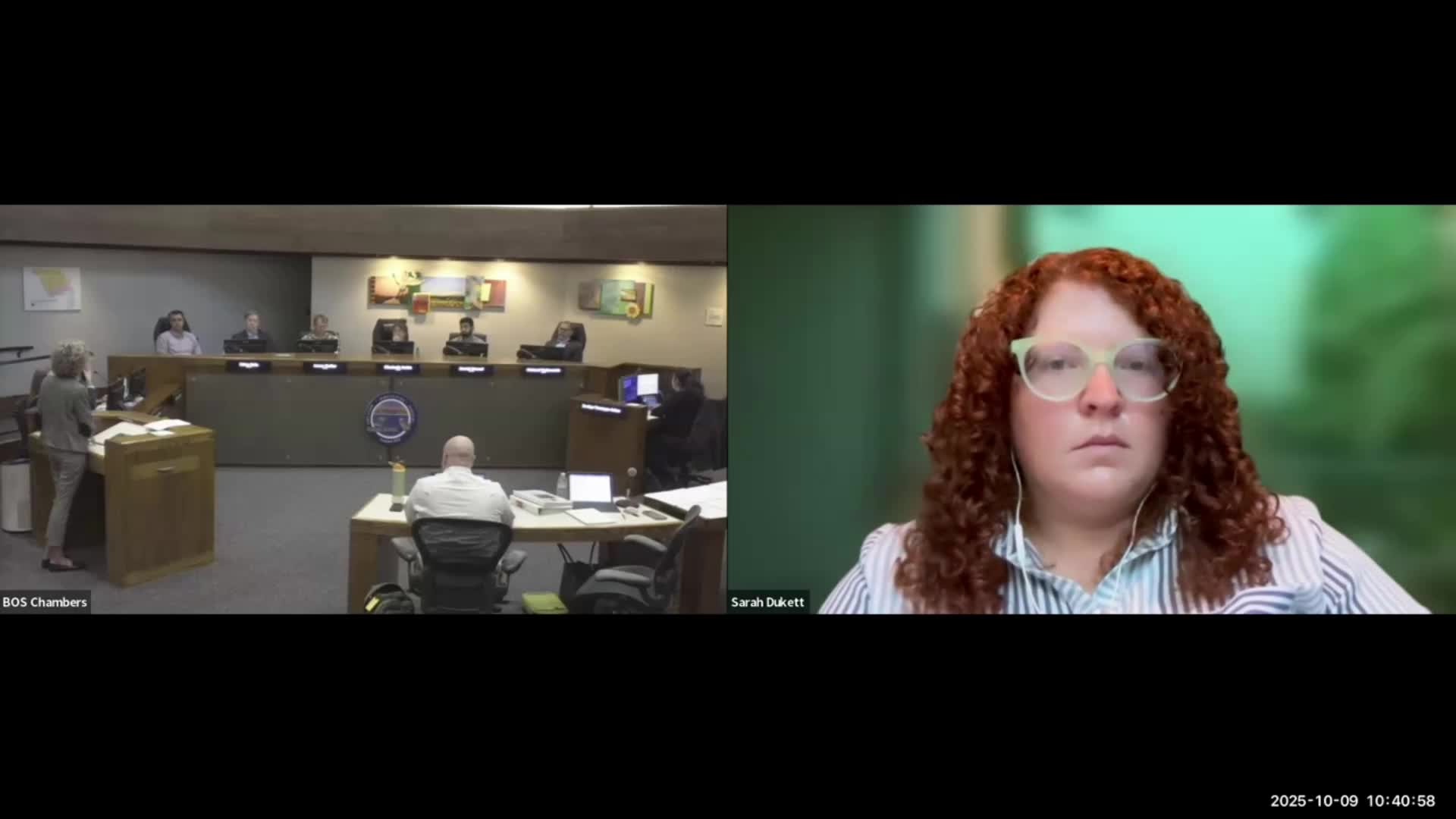Planning commission finds Zipline’s Nest Z testing site qualifies as an agricultural research facility; staff will process site plan review
Get AI-powered insights, summaries, and transcripts
Subscribe
Summary
The Yolo County Planning Commission voted 7–0 to interpret Zipline’s Nest Z drone test site as a ‘small experimental agricultural and seed research facility’ (under the county code), allowing the company to proceed with a ministerial site‑plan review rather than a zoning code amendment or discretionary rezoning.
The Yolo County Planning Commission on Oct. 9 unanimously concluded that Zipline’s Nest Z drone testing operation on Yolo Land and Cattle property qualifies as a small experimental agricultural and seed research facility under county zoning code, enabling the applicant to proceed with a site plan review rather than initiating a zoning code amendment or discretionary rezoning. The vote was 7–0.
What the commission decided: The commission considered whether the company’s drone testing and research — a compact operation occupying about 4.9 acres within a roughly 7,500‑acre ranch near Esparto — is “subordinate to and in support of agriculture” as the county code requires for the small experimental agricultural and seed research classification. Staff presented the interpretive question and noted examples of past seed‑research uses that fit the code. After a staff presentation, testimony from Zipline and its landowner, and discussion among commissioners, the commission accepted staff’s recommendation that the Nest Z site fit the small‑research category and thus may be processed with a ministerial site plan review (an objective review of development standards) rather than a discretionary rezoning.
Why it matters: The decision clarifies how the county will treat a new category of high‑technology, aerial research on large rural properties: the ruling allows Zipline to proceed under an established, ministerial pathway (site plan review) instead of a lengthier zoning‑amendment process that could have required a full discretionary review and CEQA analysis. Commissioners and staff noted the decision is a fact‑specific interpretive ruling — not a broad code rewrite — and said the county should consider a code update later to address drone testing and other emerging ag‑technology uses more comprehensively.
Key points from presentations and discussion - Project description: Zipline’s Nest Z test site operates on a roughly 5‑acre portion of a larger Yolo Land and Cattle property at 24445 County Road 25. The on‑ground footprint contains modular office buildings, temporary tents, Conex storage containers, roughly 31 drone docking towers and temporary mock “backyard” delivery test sites used to simulate deliveries. A staffed 12‑foot observation tower monitors drone operations. Zipline reported 500–600 test flights per day currently over the ranch (7–8 drones typically aloft at any time) with a proposed eventual scale up to about 2,500 test flights per day under full buildout assumptions shown to the commission. - Zoning question: County principal planner Jeff Anderson framed the question as an interpretation: does Zipline’s activity qualify as the listed small experimental agricultural and seed research use (section 8‑2306(q) cited in the staff report)? That code entry allows industrial or scientific uses “subordinate to and in support of agriculture” and explicitly lists small research stations as examples. Staff observed that while Zipline’s technology has many commercial and retail delivery applications, the company has a long record of agricultural deliveries (animal vaccines, artificial insemination supplies, veterinary products) and the Nest Z testing directly supports rural delivery, animal health and other farm uses. - Conservation and wildlife concerns: A county‑commissioned biological review by Madrone Ecological Consulting found a low potential for drone‑related nest abandonment or bird strikes given historic operations at the site and the absence of documented strikes during 7 years of operation; the report recommended buffers, worker awareness training and operational best practices to minimize potential impacts. Commissioners said they expect such measures to be captured in the site plan review. - Applicant’s case: Alissa Pont, Zipline deputy general counsel, said Zipline’s mission is to modernize transportation infrastructure and that most of Zipline’s more than 1.6 million deliveries globally have served rural health and agricultural needs; she argued the testing operation is therefore subordinate to and supportive of agricultural uses. Zipline representatives showed examples of animal health deliveries and noted local ranchers and the Madison Fire Department had signaled support.
Commission action and next steps The commission’s 7–0 decision finds the operation qualifies for processing as a small experimental agricultural and seed research facility. Under staff’s explanation, that means Zipline’s pending site plan review application will be processed ministerially (objective standards review) to confirm compliance with building, safety, biological, traffic and other applicable development standards. If the commission had found the use did not qualify, Zipline would have been required to pursue a zoning code amendment or a discretionary permit path, which could have required additional CEQA review.
What the ruling does and does not do - Does: Permit Zipline to proceed with a site plan review application process and staff review under existing objective standards; allow staff and applicant to incorporate recommended biological buffers and other mitigation measures into the site plan review. - Does not: Approve the final site plan or any operational expansion; exempt the project from any building, safety, environmental health, FAA or biological review; change county code or create a county‑wide permit for other drone operations. Commissioners and staff recommended the county consider a later code update to address drone testing and similar ag‑technology uses more explicitly.
Ending The commission’s interpretation clears the path for Zipline to continue testing at Nest Z while staff completes an objective site plan review. Several commissioners requested that staff consider a broader zoning‑code review in the future to clarify how the county will treat drone and other emerging ag‑technology facilities in agricultural zones.
